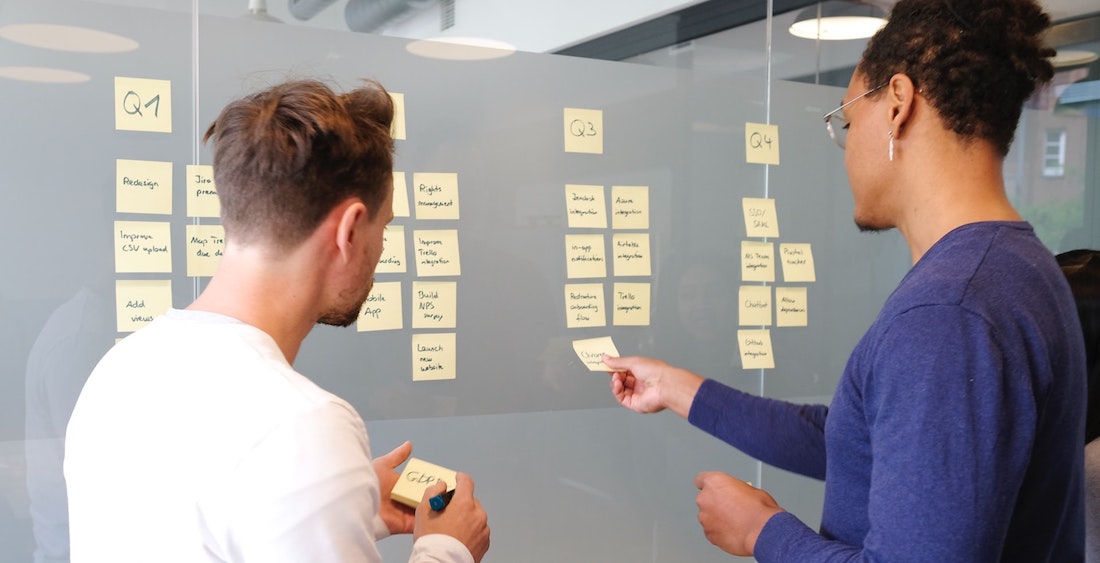
The first requirement for starting a smart working project is certainly an in-depth and detailed knowledge of this concept and of all the implications that this change has on people and processes in the company.
However, this knowledge must necessarily be accompanied by specific skills and attitudes thanks to which it is possible to guarantee an effective introduction of smart working whose results and effects are long-lasting and consistent over time.
To start a smart working project, it is therefore essential to choose the right people.
Whether it is a team of several people or a single manager, whoever leads the project must be able to transmit the change to people and implement it effectively by involving all company functions. For this to be possible, let’s see together what skills a smart working project manager must have.
Inspire people.
The starting point of every project is the right vision. This is even more true in the case of the implementation of smart working, a working model centered on the person and his needs, that requires a very strong part of inspiration to ensure that the new approach is gradually internalized and adopted by employees.
For this reason, who lead the project must enthusiastically embrace this change and be able to inspire people transmitting them the culture and values that characterize this new way of working.

Communication skills.
Project managers must be able to communicate clearly and spread the message internally. In particular, it is necessary to be able to well explain to employees why to change, together with all the advantages and disadvantages associated with the process.
In this way the change is not perceived as something suddenly and unjustifiably dropped from above and the risk of rejection in the face of innovations is minimized.
Whoever manages the project must also be able to facilitate and mediate the development of ideas within the team, must be able to put everyone in the best conditions to express themselves, identify critical issues and propose solutions.
Project Management.
The ability to manage the project and the team are essential skills for the implementation of an effective, well thought out and structured smart working plan.
Consequently, it is essential to possess the typical project manager skills and knowledge such as precision, punctuality, attention to detail, ability to organize and plan resources.
In addition to this, whoever coordinates the project must also be able to guide and support the team in order to guarantee the achievement of the objectives set, the respect of deadlines and the assigned budget.

Design thinking.
It is a methodology born in the world of design but today increasingly adopted by companies and professionals from the most diverse fields.
It is, in essence, an approach marked by innovation and based on the ability to solve complex problems in a creative way. To do this, it is necessary to start from the people, listen to and analyze their needs and then define the critical points, identify the solutions, test them and make the necessary adjustments to be able to develop a project tailored and built directly on the company’s team, without obviously neglecting the economic feasibility.
Engagement.
Once smart working has been implemented, those in charge of the project must not abandon it but, in order to guarantee effective and lasting success, must continue to monitor, listen, observe the employees and above all must know how to keep people involved, engaged finding solutions and initiatives that keep their interest in the project alive, which, at the same time, will have to adapt and evolve on the basis of the feedback received and the new needs that have emerged.

Interdisciplinary collaboration.
All the characteristics listed can be enclosed in a single person or in a team of several professionals, in any case it is important who manage and guide the project has a high propensity for discussion and collaboration and is able to involve and dialogue with the main stakeholders of all corporate functions.
As we have seen, the introduction of smart working has a very significant impact on all aspects of the company, so it is necessary to carry out the change in a synergistic, collaborative and participatory way.
Whoever manages the project must know how to collaborate, put themselves in the shoes of others and be open to sharing and discussing ideas, bringing together multiple points of view and aspects so as to create innovative but at the same time structured, complete solutions capable of satisfying needs and solve the critical issues of all the actors involved.
In conclusion, since smart working is a very complex issue that generates innumerable impacts and requires radical changes in people’s mindset, it is clear that for the success of a smart working project numerous skills must come into play – some technical, others more soft – essential for the good management of a project and to facilitate a progressive and heartfelt adhesion to change on the part of everyone.
Text by Lucia Goracci, Innovation Advisor and People & Organization Expert at Seedble.
Upper photo: krakenimages, unsplash
















